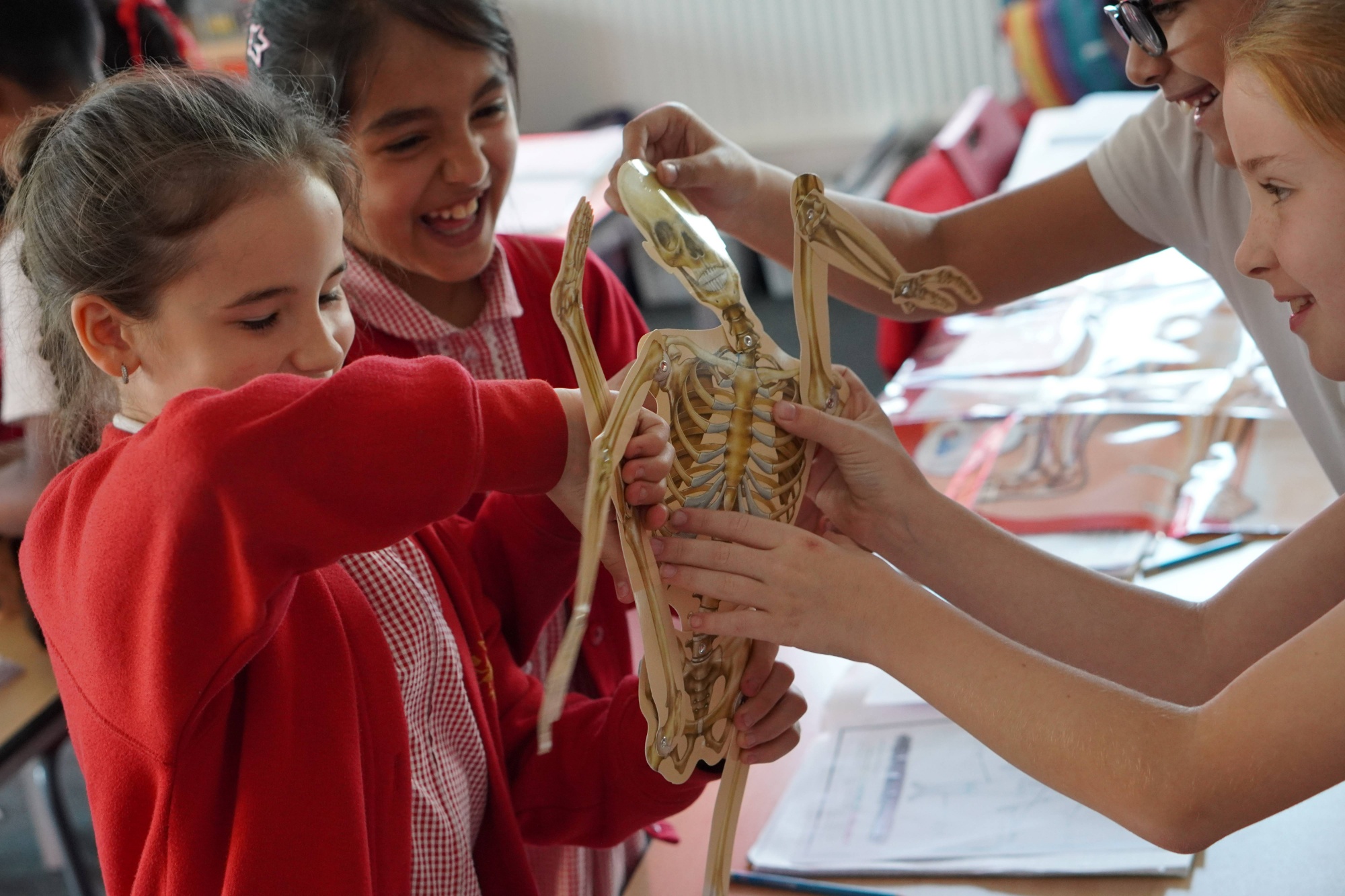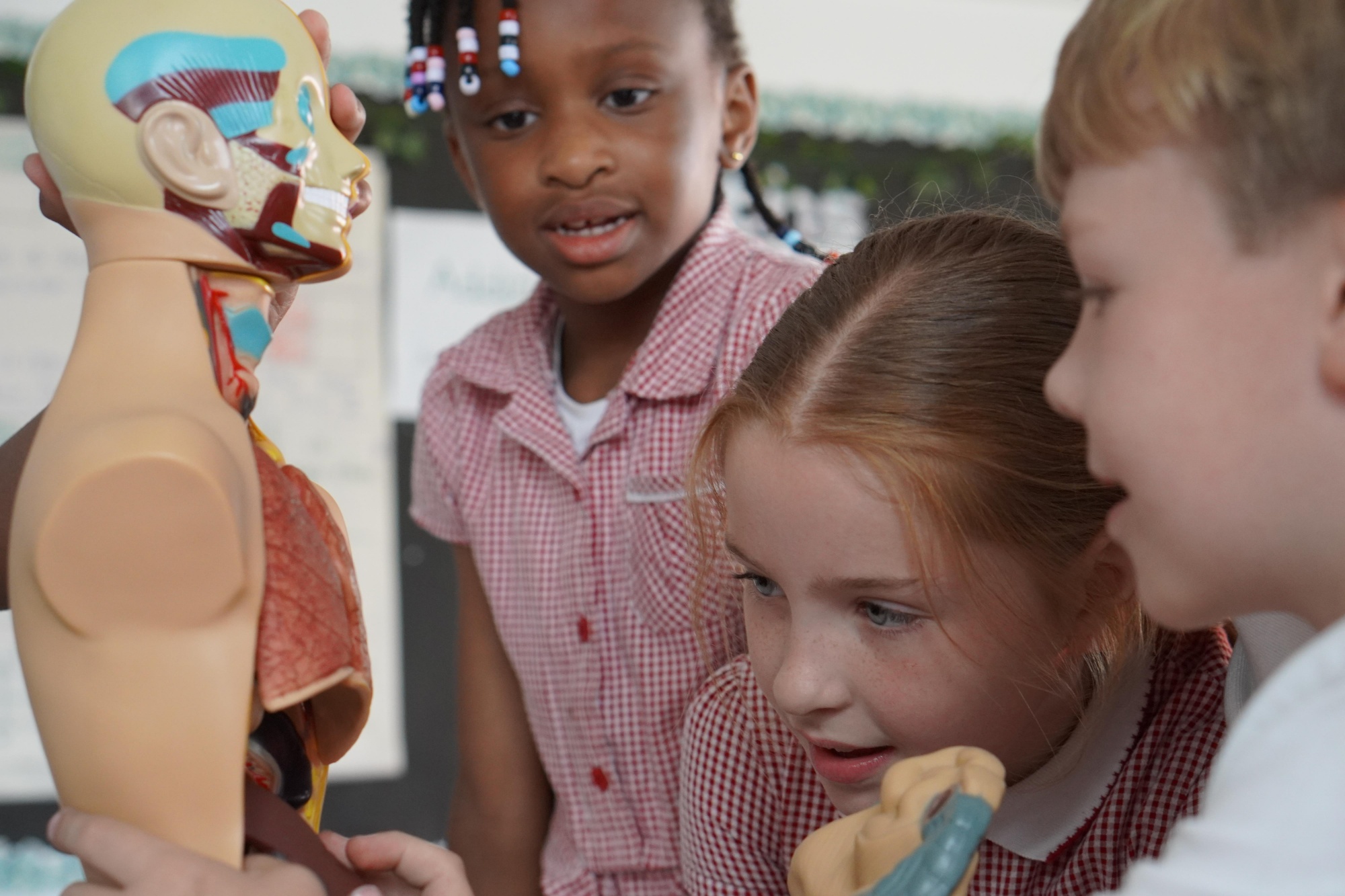Science: Exploring Our World Through Enquiry
We recognise Science's vital importance in daily life. As a core subject, we give it the prominence it deserves, focusing on increasing pupils' knowledge and understanding of our world, and developing skills essential for scientific inquiry.
Our science curriculum cultivates children's natural curiosity, encourages respect for living organisms and the environment, and provides opportunities for critical evaluation of evidence. We are committed to delivering an accessible curriculum that maximises outcomes for every child, ensuring they know more, remember more, and understand more.
As a result, our pupils will:
- Think independently and ask questions about scientific processes and knowledge.
- Develop an understanding of scientific enquiry methods to answer questions about the world.
- Be equipped with scientific knowledge to understand the uses and implications of Science for today and the future.
- Develop confidence and competence in practical skills, taking initiative in investigations.
- Communicate scientific information using various methods, including ICT, diagrams, graphs, and charts.
- Develop enthusiasm and enjoyment for scientific learning and discovery.
Our Aims
The National Curriculum for Science aims to ensure all pupils:
- Develop scientific knowledge and conceptual understanding through biology, chemistry, and physics.
- Develop an understanding of the nature, processes, and methods of science through different types of scientific enquiries.
- Are equipped with the scientific knowledge required to understand the uses and implications of science, today and for the future.
Subject Content
By the end of each key stage, pupils are expected to retain, apply, and understand the specified knowledge, skills, and processes.
Key Stage 1
The focus is on pupils experiencing and observing phenomena, looking closely at the natural and human-made world. They are encouraged to be curious, ask questions, and develop scientific ideas through various enquiries: observing changes, noticing patterns, grouping/classifying, simple comparative tests, and using secondary sources. They begin to use simple scientific language to communicate their findings.
Children will learn about: animals (including humans), living things and their habitats, everyday materials and their uses, plants, and seasonal changes. Learning primarily occurs through first-hand practical experiences, supplemented by relevant secondary sources.
Lower Key Stage 2 (Years 3 & 4)
The focus is on broadening pupils' scientific view of the world. They explore, discuss, test, and develop ideas about everyday phenomena, relationships between living things and environments, and begin to develop ideas about functions and interactions. Children ask their own questions and make decisions about appropriate scientific enquiry methods (observing changes, noticing patterns, grouping/classifying, simple comparative/fair tests, using secondary sources).
Children will learn about: animals (including humans), plants, rocks, light, forces and magnets, living things and their habitats, states of matter, sound, and electricity. They draw simple conclusions and use scientific language to talk and later write about their findings.
Upper Key Stage 2 (Years 5 & 6)
The focus is on developing a deeper understanding of a wide range of scientific ideas. Pupils explore and discuss ideas, ask their own questions about scientific phenomena, and analyse functions, relationships, and interactions more systematically. They select the most appropriate scientific enquiry methods (observing changes over time, noticing patterns, grouping/classifying, comparative/fair tests, using a wide range of secondary sources).
Children will learn about: animals (including humans), living things and their habitats, properties and changes of materials, Earth and space, forces, evolution and inheritance, electricity, and light. They draw conclusions based on observations and data, use evidence to justify ideas, and apply scientific knowledge to explain findings.


